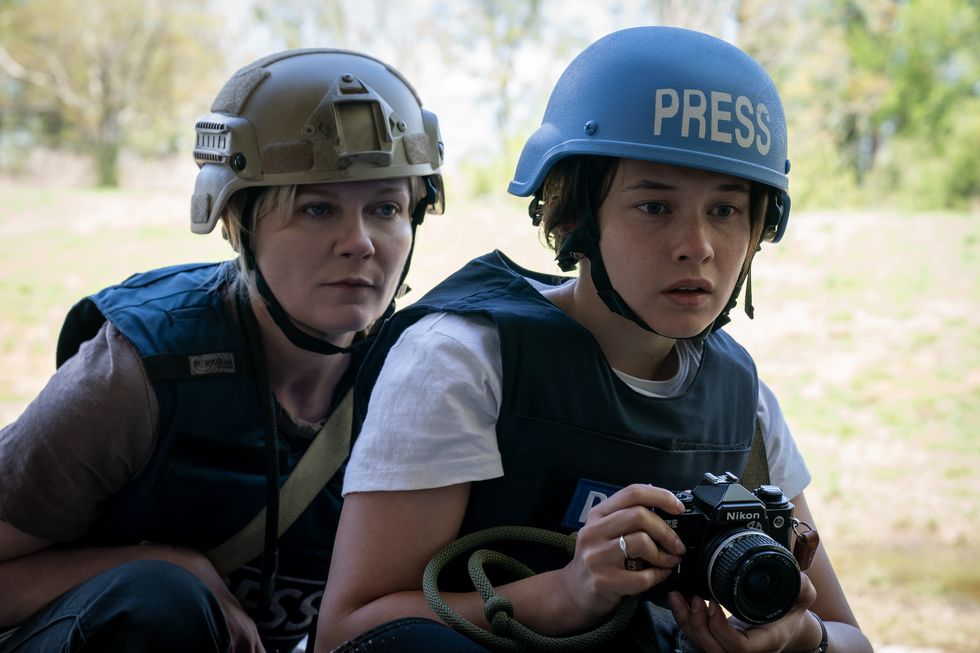5 Ways to Get Accurate Accents from Your Actors
A dialect coach breaks down several 'real-life' performances to show you how to hit exactly the right note in your films.

Actors are both one of the most important, and least controllable, variables in filmmaking. Getting a good performance is hard enough when the actor is free to develop their character, but if that character has any sort of regional or national accent, then the authenticity of your film can hinge on their vowel sounds.
This video from WIRED drives that point home, as dialect coach Eric Singer examines several famous performances where actors portray historical figures. Check it out below, followed by a breakdown of five of the performances he assesses.
1. Michael Fassbender as Steve Jobs
The late Apple founder was portrayed by Fassbender in the 2015 film named after the tech god. This is an interesting accent, as everyone knows what Steve Jobs sounded like, and yet, he didn't sound like anything in particular. And, in fact, Fassbender has said that he wasn't attempting to do any particular imitation of Steve Jobs, though, according to Singer, he comes really close to the man's actual voice. This is remarkable to him, especially considering that Fassbender is Irish, and yet manages to hit several American grace notes in Jobs' voice, such as a "drawn out 's' sound."
Another thing he gets is a "slight nasality" on "a" sounds, as in, well, apple. He then contrasts Fassbender's performance with Ashton Kutcher's performance as a younger version of Jobs in a different movie, which, according to Singer, is just, well, not that good.
2. Will Smith as Muhammad Ali
Singer declares Smith's performance in Ali as excellent, especially considering "all of the time he had to put into the physicality" of the role, learning to box just like Ali, as well as speak like him. The dialect coach posits that Smith must have worked incredibly hard, as he has the "rhythms, pitch, the cadence" of Ali, who was, of course, a singular presence as well as a global celebrity for most of his life.
Playing a role like this is, for an actor, a high-wire act. Unlike an actor playing Steve Jobs, who an audience will only recognize as failing if something doesn't feel right, if Smith had failed to deliver the goods, he would have completely ruined the film. Like a young Ali, Smith lengthens the final "n" and "m" sounds in many words, and the comparison between the two encounters with Howard Cosell is indicative of just how good Smith is (and Join Voight as Cosell is no slouch, either.)
3. Joaquin Phoenix as Johnny Cash
Singer calls this a brilliant performance, but he has "one quibble," namely the way Cash pronounced the "w" sound, as in the word "whistle" from his song, "Folsom Prison Blues".
While not taking anything away from the overall greatness of the performance, Singer does feel as though a little detail such as this "helps set the place and the time, and it's an interesting example of the ways in which really specific details...help support the story." And he's right. When it comes down to it, an actor who is playing any character from a specific region or time period, let alone a specific person, always has to keep in mind the fact that the devil is in the details, and the slightest misstep can have a subliminal effect on audiences. This is multiplied here, because, well, as a singer, Johnny Cash was known for the way he sounded, and his voice is one of the most distinctive there is.
The most important thing for an actor to get is the rhythm and the intangible qualities of the character.
4. Meryl Streep as Julia Child
Like Ali, Julia Child had a famous voice, full of mannerisms that were often imitated, but almost never duplicated. But in Julie & Julia, Streep, who has done countless accents over her decades-long career, sounds, in Singer's words, "just like her." In Singer's words, "it just seems to be a pure emanation of the person herself." Now, we should all be so lucky as to have Meryl Streep in our films, but it's not just the technical aspects, the range, the inflections, the gestures and shapes that forms the vowel sounds, that impress him. Here's Child:
And here's Streep:
For Singer, it's the fact that Streep puts across the "forthright flamboyance" of the famous TV chef she is playing, and the lesson here is that, even more than the dance steps, as it were, the most important thing for an actor to get is the rhythm and the intangible qualities of the character. Again, this goes for any performance, not just when playing a real-life person is called for. Even if Julia Child had never existed, and Meryl Streep had made her up from whole cloth, everyone would still have been bowled over by the mastery she demonstrates in her performance.
5. Daniel Day-Lewis as Abraham Lincoln
Singer critiques several other worthy performances in this video (among them, Jesse Eisenberg's take on Mark Zuckerberg, as well as Cate Blanchett's Bob Dylan) but I thought it would be interesting to end on this performance, and not just because it's Daniel Day-Lewis. It's because he's playing one of the most famous characters in American history, and yet, the 16th President is a man whose voice has never been heard by anyone in the 20th century, as Honest Abe lived and died before the age of recorded speech.
Singer does note that there are contemporary accounts of Lincoln's voice, and it is described as being "surprisingly high-pitched" for a man of his size, as well as "kind of reedy, even whiny." What Lewis did was to "construct a character around the character that we know as Lincoln and some of these...famous words." In this case, the questions become, does the voice serve the story? Is it integrated? Does it draw us in, is it specific? Does it feel, in other words, like a fully drawn person? Singer's answer is that, yes, it does, though he does feel that Lincoln's voice has been performed better, and there is little use arguing this point.
The ultimate point is that the most important element in any performance is the fullness of it, the fidelity to some sense of life, of truth. Almost no rendition of a famous person can hope to capture every single grace note in that person's manner of speaking or behavior, and yet, when the actor fills up the part with themselves, an audience will believe. And the same is true for any performance.
There are, of course, technical aspects to certain accents that have to be nailed down, especially if you have a story set in a specific region. But the main lesson here is to look for those traits in the character that, when shown on screen, will telegraph a human being, and then work on them until a fully-fleshed person forms.
Source: WIRED
















